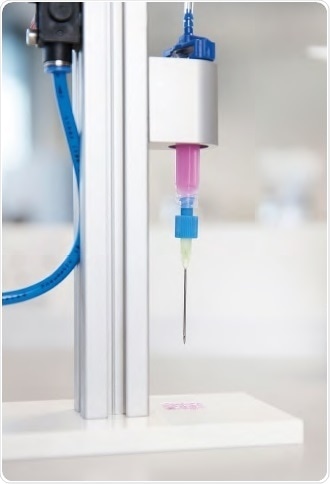Manchester BIOGEL’s PeptiInks® have shear-thinning properties and are designed for 3D bioprinting using any extrusion-based printer. Any cell type can be encapsulated within the peptide bioinks and printed directly with long-term viability and stability, as well as structural definition.
For users who are tired of time-consuming and tricky use of sacrificial links, lack of reproducibility, or post-printing curing or cross-linking, Manchester BIOGEL’s PeptiInks® are biologically relevant, chemically defined, and formulated to meet the requirements of users’ cells.
Benefits to Users
- Animal-free — 100% ethical solution
- Consistent — Reproducible product to achieve reliable results
- Modular — Users can tailor the viscosity and functionality to meet the needs of their cells
- Structural definition — printed with high structural integrity
- Ready to print — Users can just combine their cells, print, and get results
- Transparent — Compatible with all regular optical and fluorescent imaging methods
Peptide hydrogels from Manchester BIOGEL can be an ideal choice for users who are in search of a biocompatible system for encapsulating and printing cells with fine structural definition. Get in touch with them to find out how they can help with your reearch,
or to discover which bioInk is best suited to your cells needs.
| Peptilnk |
Alpha 1 |
Alpha 2 |
Alpha 4 |
| G' (kPa)* |
10 |
20 |
4 |
| Charge |
Neutral |
Positive |
Positive |
* G' after the addition of DMEM cell culture media
Manchester BIOGEL offers functionalized PeptiInks® perfectly suited to the research requirements of users who wish to analyze specific or variable viscosities, as well as single- or multi-chemical, thus enhancing biocompatibility with different types of cells.
Listed below are a few examples of functionalization:
- RGD
- IKVAV
- YIGSR
- GFOGER
- laminin
- fluorescent labels
